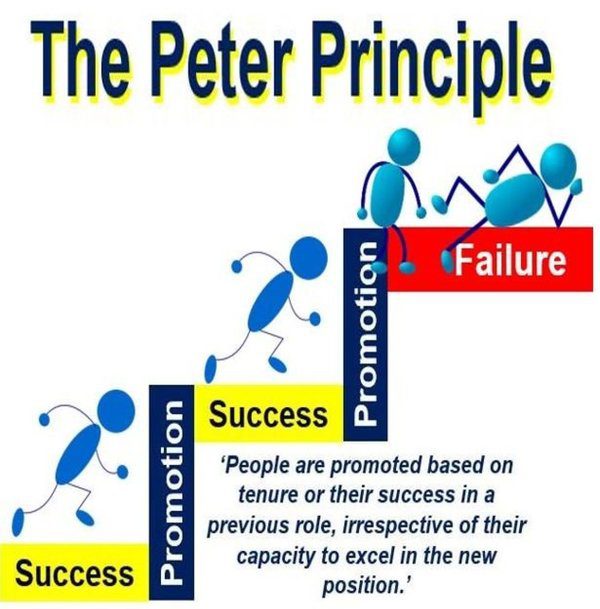Challenge the belief that the selection of a candidate for promotion should be based on their performance in their current role, rather than on their ability relevant to the intended role.
The Peter principle is a concept in management developed by Laurence J. Peter, which observes that people in a hierarchy tend to rise to their “level of incompetence”: an employee is promoted based on their success in previous jobs until they reach a level at which they are no longer competent, as skills in one job do not necessarily translate to another.
The Peter principle states that a person who is competent at their job will earn promotion to a more senior position which requires different skills. If the promoted person lacks the skills required for their new role, then they will be incompetent at their new level, and so they will not be promoted again.
But if they are competent at their new role, then they will be promoted again, and they will continue to be promoted until they eventually reach a level at which they are incompetent. Being incompetent, they do not qualify to be promoted again, and so remain stuck at that final level for the rest of their career (termed “Final Placement” or “Peter’s Plateau”).
In a Hierarchy: Every Employee Tends to Rise to His Level of Incompetence
